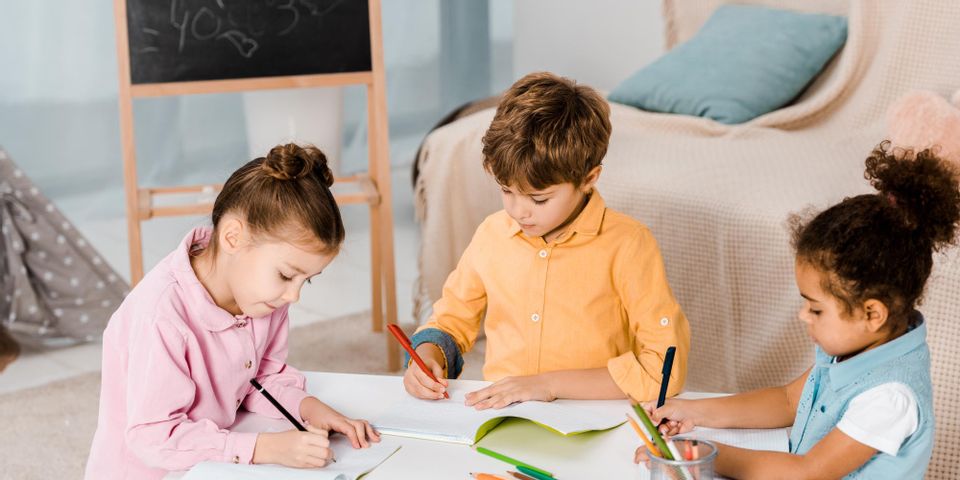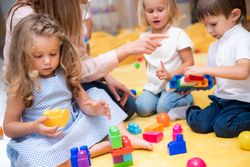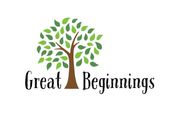5 Ways Young Children Learn to Cooperate

As young children grow, so does their sense of the world around them. As more people and responsibilities are introduced into their lives, skill development becomes critical for child development. Mastering cooperation is essential for task completion, friendship, and success at home and school. Here are five ways young children can learn this important skill.
How to Teach Young Kids to Cooperate
1. Assign Collaborative Tasks
Tasks require responsibility and problem-solving, both of which benefit from collaborative thinking. Unlike games, these tasks can be organic, real-world implementations. Assigning tasks to partners of groups requires the distribution of roles and sharing of thoughts and perspectives.
2. Demonstrate Best Behavior
Children absorb and mimic behavior from authority figures like teachers and parents. When introducing skills to impressionable children, it’s best to model that desired behavior. Seek to voluntarily assist others or encourage them to assist you in front of the child. Narrating aloud why you’ve asked for help and in what way allows children to recognize the behavior and circumstances.
3. Use Cooperative Toys & Games
 Young children may find sharing difficult or refuse to use items with friends or partners. While this behavior is perfectly normal, providing kids with multi-user toys or games forces collaboration for completion. Battling ego-centric behavior, these activities require communication and taking turns.
Young children may find sharing difficult or refuse to use items with friends or partners. While this behavior is perfectly normal, providing kids with multi-user toys or games forces collaboration for completion. Battling ego-centric behavior, these activities require communication and taking turns.
Institutions like early childhood centers surround kids with these activities to maximize cooperation exposure. These environments foster child development and ensure young kids have fun while learning new skills.
4. Offer Praise & Recognition
When young children are proactive and demonstrate cooperation, don’t let their actions go unnoticed. Offering a word of praise allows a moment to tell a child what they did well and why it was the right decision. Rewarding positive, cooperative behavior may increase the likelihood it’ll be repeated.
5. Read About Cooperation
Developing good habits isn’t immediate in the early stages of child development. One way to increase learning about cooperation is through reading. Reading aloud or independently, young kids benefit from stories about relatable characters and experiences. Reading stories with examples of cooperation can provoke thought and consciousness around the concept.
Trust the early childhood education teams at Great Beginnings to teach young kids all the foundational skills they’ll need for success. With two convenient locations, in St. Charles and Cottleville, MO, these caring professionals are dedicated to all educational and developmental needs and use a well-rounded curriculum to support your child’s growth. Visit them online for more information, or call (636-724-5048) to speak with someone in St. Charles, or (636-447-4212) for the Cottleville center.
About the Business
(26 reviews)
Have a question? Ask the experts!
Send your question

